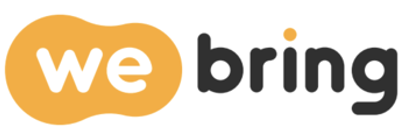As international trade continues to grow, the number of foreign buyers visiting South Korea is steadily increasing. These individuals are more than just guests; they are potential long-term business partners who can influence future contracts and collaborations. That’s why “welcoming foreign buyers” is a crucial event for any company. Beyond simply picking them up from the airport and guiding them to their accommodations, a well-organized reception with meticulous hospitality can leave a lasting impression that positively impacts business relationships.
In this guide, we will cover the entire protocol planning process—from airport pickup and business meetings to factory visits and formal dinners—ensuring that foreign buyers have a seamless experience in Korea. Properly preparing each step and prioritizing convenience for buyers will enhance their trust in your company and products.
Step 1: Airport Pickup and Transportation Strategies
Key Points for Airport Reception
The reception process starts the moment the foreign buyer steps off the plane. Upon arrival at Incheon Airport (or Gimpo Airport), a designated company representative or interpreter should wait at the arrival gate with a name sign. To facilitate a smooth entry, VIP lounge services or fast-track immigration support can be arranged. Assisting with baggage claim, customs clearance, and escorting them efficiently to the company vehicle ensures a seamless welcome.
Since buyers may be fatigued from long-distance flights, providing bottled water, light snacks, and phone chargers in the vehicle can be a thoughtful touch. It’s also important to check their language preferences and briefly outline the route and estimated travel time to the hotel. If traffic congestion is expected, informing them in advance with an estimated time helps set expectations.

Choosing the Right Vehicle: Sedan vs. Van
For solo buyers or small groups (two or fewer), a luxury sedan such as the Equus, Genesis, or Mercedes-Benz E/S-Class is a common choice. If company executives, interpreters, or multiple escorts are involved, a van (Carnival, Staria, or a limo van) may be more appropriate. For high-profile VIPs seeking added prestige, a limousine service can be arranged, though it may not always be practical for city travel.
The key consideration is the condition of the vehicle’s interior. The seats should be spacious, climate control should be optimal, and additional conveniences such as Wi-Fi and phone charging capabilities should be available. While having a driver who speaks basic English is beneficial, a dedicated interpreter should accompany the buyer if necessary.
Step 2: Hotel Check-in and City Tour
Hotel Booking and Check-in Assistance
If a buyer plans to stay for an extended period, the host company often arranges accommodations. The selection of the hotel significantly influences their overall satisfaction, considering factors such as accessibility, security, and amenities. Upon arriving at the hotel, assisting with the check-in process and verifying room readiness can prevent unnecessary delays. Additionally, confirming VIP lounge access and pre-arranged room preferences (smoking/non-smoking, bed type, and view) ensures a hassle-free experience.
To simplify the check-in process, the host company can provide the hotel with necessary details, such as credit card guarantees, in advance. For VIPs, the hotel may prepare welcome gifts, such as fruits, a personalized letter, or a complimentary souvenir. Even small gestures like these reinforce the perception that the company values its business relationships.
Rest Time and City Tour Options
Since many buyers may experience jet lag or fatigue upon arrival, it’s best to keep their first-day schedule light. If they arrive in the afternoon or evening, allowing time for rest at the hotel is preferable. However, if they express interest, a short city tour can be arranged—visiting popular destinations such as Myeong-dong, Namsan, or Itaewon. Having a company representative accompany them ensures safety and convenience.
Selecting locations based on the buyer’s interests is ideal. Those fascinated by traditional culture can visit Insadong or Gyeongbokgung Palace, while those interested in shopping might prefer areas like Hongdae or COEX. It’s crucial to keep travel distances short and ensure that transportation is on standby for a swift return to the hotel when needed.
Step 3: Business Meetings and Site Visits
Office or Corporate Headquarters Meetings
On the day of a scheduled business meeting, a company representative should pick up the buyer from their hotel and escort them to the office or corporate headquarters. Preparing beverages or light refreshments in advance helps create a welcoming atmosphere. Since buyers may be unfamiliar with the office layout, providing a brief tour or explaining meeting protocols enhances their comfort. Having an interpreter present minimizes any potential miscommunication.
While the meeting itself is led by company executives, logistical aspects such as seating arrangements, beverage service, and interpreter headsets (if needed) should be meticulously planned. Post-meeting, coordinating lunch or refreshments, identifying seating placements, and planning the exit protocol ensure a smooth flow. Additionally, flexibility in scheduling helps accommodate any unexpected adjustments.
Protocols for Factory or Site Visits
If the itinerary includes a factory, research facility, or project site visit, proper planning is crucial. Buyers should be informed in advance about safety gear requirements, access restrictions, and photography policies. Arranging smooth mobility within the facility and providing hearing protection or interpretation headsets where necessary can improve their experience.
After the tour, hosting a Q&A session or an on-site discussion regarding tentative contract details may be beneficial. Offering refreshments and maintaining seamless communication throughout reinforces a professional image and reliability. Even minor hospitality efforts, such as ensuring easy restroom access and maintaining clear guidance, can significantly enhance the buyer’s perception of the company.
Step 4: Formal Dinners and Cultural Engagement
Formal Dinner Protocol
Hosting a formal business dinner is an excellent opportunity to strengthen trust with foreign buyers. High-end restaurants or hotel banquet halls usually serve as appropriate venues, requiring careful attention to menu selection, seating arrangements, and etiquette. Taking dietary restrictions into account, such as halal, kosher, or vegetarian preferences, is essential. Additionally, being aware of the buyer’s alcohol consumption culture can help avoid any unintended mishaps.
Structuring toasts, short speeches by corporate and buyer representatives, and moments of casual conversation can make the dining experience more enjoyable. An interpreter should always be present to facilitate seamless communication, ensuring that no important conversations are lost in translation.
Traditional Cultural Experiences for Relationship Building
If preliminary business discussions or contract negotiations are complete, arranging a traditional cultural experience for buyers can be a valuable closing touch. Activities such as trying on hanbok, participating in tea ceremonies, attending a K-pop concert, or visiting historical drama filming sites offer buyers a glimpse into Korean heritage. These interactions can transform formal business relationships into more personal connections.
However, cultural activities should be tailored to the buyer’s preferences. Some may prefer relaxation over sightseeing, while others might be eager to explore traditional history. By understanding the buyer’s interests and offering suitable options, the experience can be both enjoyable and memorable.
Step 5: Farewell Protocol and Follow-Up Communication
Airport Drop-Off Services
On the buyer’s departure day, a well-coordinated transfer from the hotel to the airport ensures a positive closing impression. Factoring in traffic conditions when scheduling pickup times, exchanging final pleasantries, and assisting with check-in formalities all contribute to a smooth farewell. Helping buyers with baggage check-in, boarding passes, and immigration procedures enhances their overall experience.
If the buyer requires assistance with visa processing, duty-free shopping, or currency exchange, a company representative can guide them through the process. Completing the entire trip without any logistical complications conveys professionalism and attentiveness from start to finish.
Post-Visit Follow-Up
The reception process doesn’t end at the airport. Sending a follow-up email or message soon after the buyer’s return is an essential continuation of the hospitality effort. A polite inquiry about their safe arrival, attaching group photos from the visit, or proposing future discussions can facilitate stronger business rapport. Small, thoughtful gestures like this can significantly impact future negotiations and reinforce the company’s positive image.
Conclusion: Seamless Reception Planning Leads to Business Success
Welcoming foreign buyers is far more than just providing transportation—it encompasses hospitality, convenience, and professionalism at every stage of their visit. A well-planned itinerary covering airport pickup, accommodation, business meetings, site tours, and cultural activities fosters an environment conducive to successful business discussions and long-lasting partnerships.
To achieve this, careful coordination of transportation, interpreters, and on-site staff must be arranged in advance. Understanding cultural differences—including dietary habits, religious practices, and etiquette—is also paramount. Investing in top-tier hospitality may require additional resources, but the returns in terms of strong business relations and successful deals far outweigh the costs.
Ultimately, successful buyer reception is about anticipating what would make them feel most comfortable and optimizing their business experience. Companies that excel in this area not only secure deals but also earn a global reputation as a trusted business partner.
K-Name Studio: Create your perfect Korean name based on your personality and style.
What’s My K-Beauty Personal Color?
WeBring Service : Provides personalized services to foreigners living in Korea
Exclusive offer: Introducing foreign car rental in Korea, WeBring-SoCar

